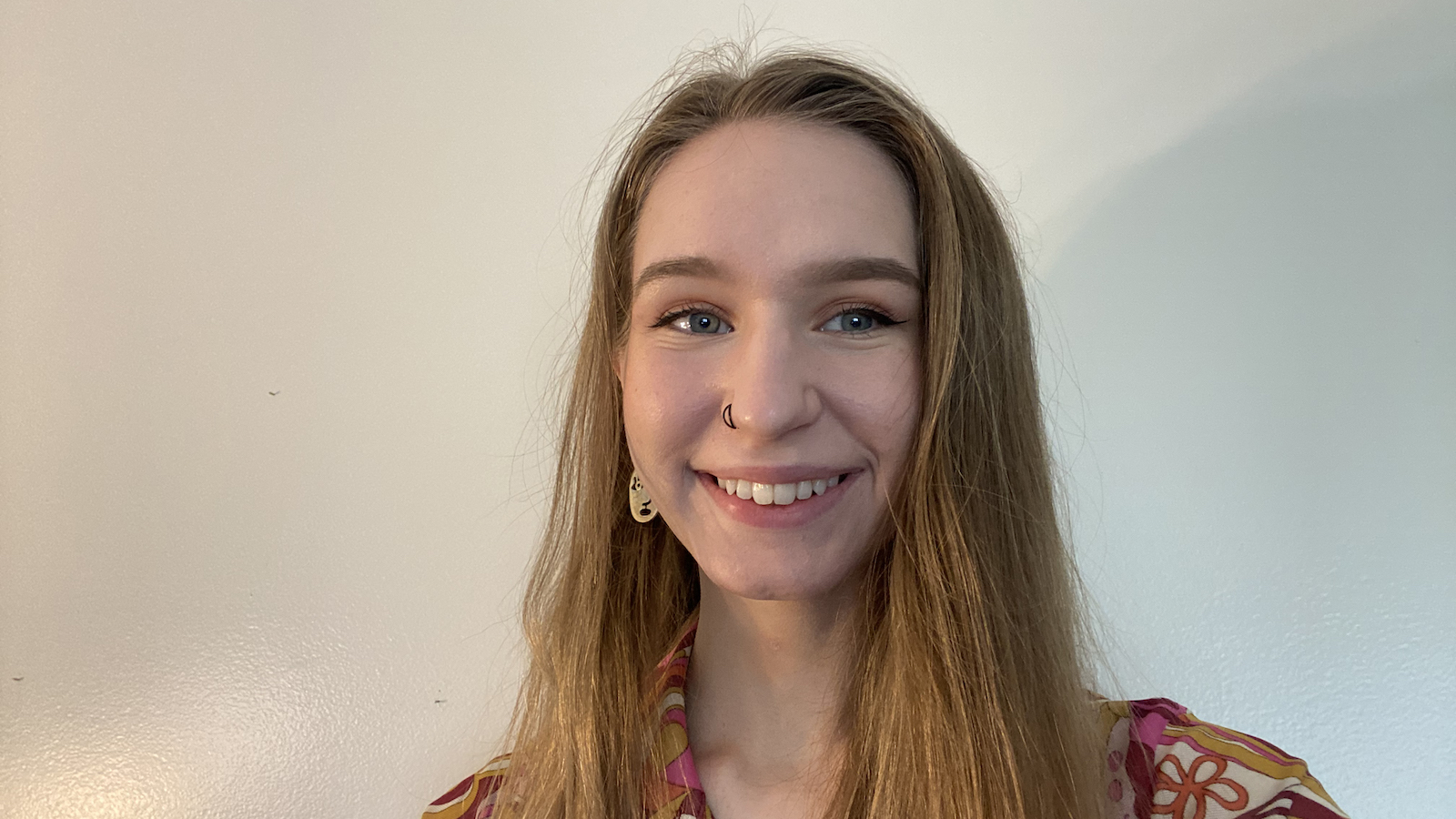Emma Wilkinson is Cultivating Empathy Through Language Learning
April 27, 2023

The junior Arabic and international relations double major has a passion for humanitarian work.
By Jessica Weiss ’05
She had never spoken Arabic before college, but now, Emma Wilkinson ’25, a double major in Arabic and international relations with a minor in international development and conflict management, is on track to have a professional level of fluency by the time she graduates from UMD.
She credits her participation in the UMD Arabic Flagship Program, housed in the School of Languages, Literatures, and Cultures, which combines intensive study in the U.S. with immersion overseas in Morocco and is one of only six Arabic Flagships in the nation.
We recently sat down to speak to Wilkinson about her experience in Flagship and her passion for humanitarian work.
What got you interested in learning Arabic?
When I was in high school I had a professor of economics and geography who talked a lot about Middle East history and politics, which wasn’t something I was too familiar with. Growing up in Maryland I heard about the region in the news, but I began to realize in school that a lot of what I learned may have been massive generalizations. So, I got very interested in learning more about the region and the Arab-speaking world from him. When I got to college, I decided to take an Arabic course just to see where it took me. I loved learning the language, and all the professors in the Arabic department were amazing, so I stuck with it and decided to add it as a major. It has been amazing to learn Arabic at UMD. The department here is so supportive and the faculty really make sure you’re understanding.
You’re in UMD’s Arabic Flagship Program. What does that consist of and how has it helped you in your language study?
The Flagship Program gives students a great opportunity to reach professional fluency through classes, cultural activities, field trips, language partners and workshops. So that means professional fluency in reading, speaking, listening and writing. I have two language partner meetings per week, where we speak in an Arabic dialect. In class, we learn modern standard Arabic, but with partners, we get to choose which dialect to focus on so that when we go to Morocco or anywhere else in the Arabic-speaking world we’re actually able to communicate. I also have a mandatory hour-long tutoring session per week. I’ll most likely be headed to Morocco for a year in 2025.
Even though you’re studying in the U.S., do you feel you’ve been able to immerse in aspects of Arab culture?
I took part in the Arabic Language Summer Institute, which offers immersive experiences during the summer term, and that was where I took some of the most beneficial cultural courses. It gave us opportunities to learn about how to be culturally sensitive; so we were given different scenarios to learn about what might be considered offensive in Morocco or Egypt, whether it’s through interactions with a host family or someone else. That was really beneficial. We also took part in a lot of really fun activities, like calligraphy and cooking. I love food and meals are such an important part of a culture, so that was a great way to learn and immerse. For me, it’s really important to work on breaking down any stereotypes I have and trying to create a more inclusive world.
You have an interest in humanitarian work. Where does that stem from?
Yes, I worked with my family beginning in 2015 to develop a community-based organization called Marks Backpacks, aimed at alleviating some of the most basic needs of homeless individuals in Washington, D.C. My two sisters, mom and dad, and I all work on the project. It has really inspired me to learn more about people from communities I’m not familiar with. It’s helped me break down stereotypes and stigmas and develop more empathy. A huge part of our project involves advocacy work, so I teach high school students about destigmatizing homelessness each year. I am currently working on starting a campus club for Marks Backpacks.
I really want to help international communities as well and I’m currently continuing to cultivate my passion for humanitarian work in my minor in international development. With the coursework I’m in now I’m working on a development project in Syria; by the end of the semester, it could be a viable project we pitch to different development agencies. We’ve had to learn a lot about Syrian culture to make sure our idea is something the local community would support, so it’s been a great opportunity to further develop cultural sensitivity.
Why do you think studying language is so important?
I think broadening your horizons and studying language is one of the most important things you can do in your life. It can be really dangerous not to have cultural sensitivity and awareness, and also I think it’s a great way to establish community and to have relationships with people in other parts of the world. It’s also a great way to learn about your own culture because you’re learning about differences and how to respect them. You’re able to gain a level of empathy that you might not be aware you’re lacking.

